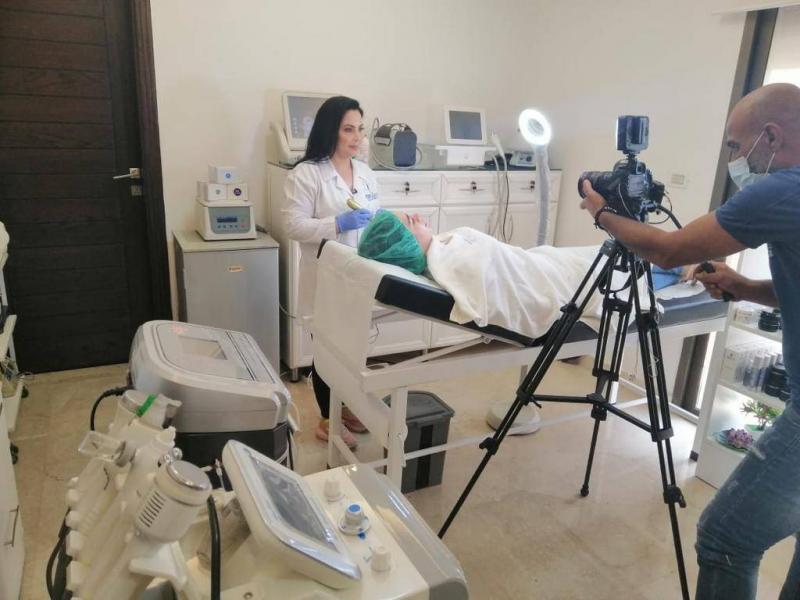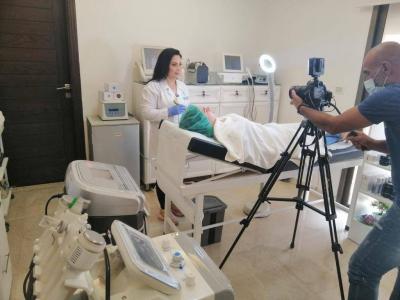Lebanon has gained wide recognition in the beauty sector, attributed to the global perception of Lebanese doctors' prowess and the Lebanese woman's attention to beauty and elegance. Despite the economic crisis facing Lebanon, there remains a large segment of women who are turning to cosmetic clinics to keep up with the evolving trends in aesthetic practices, resulting in a division within this sector between beneficiaries and those adversely affected.
**Cosmetic Surgery: Need or Addiction?**
"Sometimes harmful situations yield beneficial outcomes," which is the case for "Rasha," a sample of women who have not stopped caring for themselves despite their limited financial means. In a conversation with "Warda," she stated that visiting a cosmetic clinic has become an essential part of her life—"it's become an addiction for me and I can't stop." Even her priorities have shifted according to her monthly income, with the absolute priority now being given to "filler injections." She mentioned, "Prices are still acceptable, and there are many promotions and discounts at beauty centers; the injection used to cost $100, but due to the crisis, it's now half that price, which is encouraging."
**Promotions Encourage Women**
The reality that Rasha benefits from could have health implications according to cosmetic medicine consultant Dr. Ramziya Al-Anan, licensed by the American and Swedish boards. In her discussion with "Warda," she indicated that the economic situation and the tendency of girls to follow trends have led beauty centers to sacrifice the quality of materials used to keep prices relatively affordable for everyone. The lack of scientific knowledge has caused some women to choose cheaper options, according to Dr. Al-Anan. Additionally, some centers use inexpensive materials that do not meet required standards.
Dr. Al-Anan warns against individuals who are merely technicians without medical qualifications in cosmetic surgery; they are unaware of the medical principles behind injections and do not recognize the side effects from counterfeit materials or those causing complications, which enter Lebanon illegally, prompting security forces to pursue these individuals, leading to arrests and closures of their centers. Such "clinics" have previously caused disfigurements in dozens of women, prompting them to file lawsuits against a group of impostors posing as cosmetic surgeons.
**Impact of Economic Crisis on Doctors**
The wild fluctuations of the dollar have imposed a reality on companies importing cosmetic materials, forcing some doctors to shift towards dollar pricing, while others opted for pricing in the national currency. Consequently, they have adjusted session fees to align with the economic context, aiming to preserve the reputation of the sector and avoid financial losses that could lead them to closure.
**Opportunity Arises from Crisis**
With the collapse of the national currency and the dollarization of the Lebanese economy, the beauty sector has found itself with an opportunity to maintain its activity and prosperity. This was evidenced by licensed beauty clinics we contacted, which adhere to the highest global standards. Their clientele now includes Lebanese expatriates, Arabs, and even foreigners, as the cost of caring for their skin, freshness, and radiance is less expensive in Lebanon compared to their home countries.
Lebanon, known as the "hospital of the East" because of its doctors' fame, has also become a destination for "cosmetic tourism," ranking prominently worldwide in this sector relative to its population size. However, the greatest challenge it faces now is to maintain its leading position amidst all the crises it grapples with, by combating impostors and pursuing unauthorized centers that could damage Lebanon's beautiful image.




